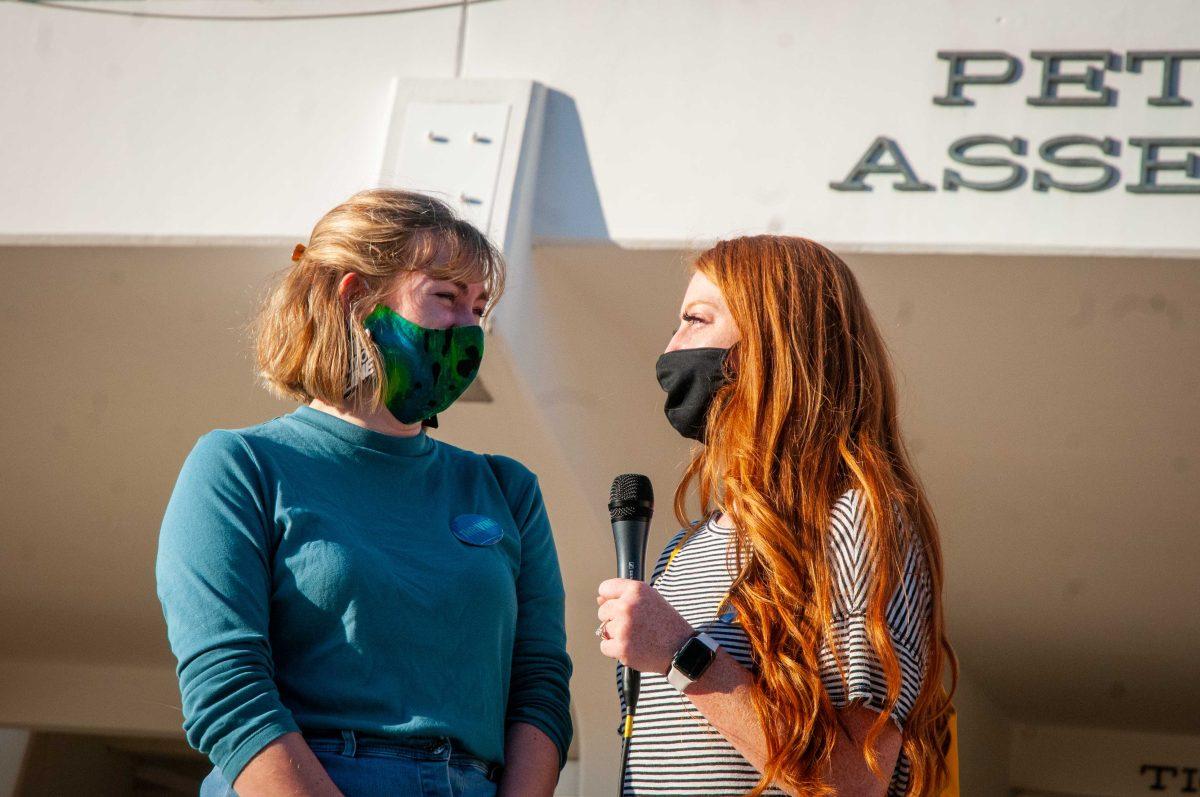Judge Janice Clark heard former LSU student Samantha Brennan and USA Today’s charges against LSU and Interim President Galligan for allegedly withholding police and Title IX documentation regarding a report filed by Brennan in which she claimed LSU football player Derrius Guice photographed her without her consent.
The case before the court does not involve the investigation into what happened in July 2016, rather LSU’s “arbitrary and capricious” handling of the document requests and the subsequent redactions made to those documents, which included the victim’s name, the accused’s name and the witnesses’ name.
LSU argued that due to privacy concerns on behalf of the victim they are required by law to redact that information if the documents are disclosed in any capacity. It can also impact the integrity of their investigation if the victim intends to pursue criminal charges, so it cannot be released until the six-year statute of limitations has passed or until there is definitive information that the victim does not wish to press charges.
The incident in question took place around July 9 or 10 in 2016, and Brennan reported it to LSUPD on July 22, 2016, after learning the picture was circulating around her workplace. At that point, she told the officer she was not interested in pursuing a criminal investigation although she was encouraged to do so.
Until August of this year, four years after the incident, Brennan made no effort to contact the police in regards to the investigation and did not imply she was interested in pressing charges against Guice. The investigation was not continued because Brennan told LSUPD she was not interested in pursuing it.
On Aug. 19, 2020, Brennan began contacting LSUPD to request the files regarding her incident report. She alleged that she was “stonewalled” by Lieutenant Theresa Griffin, Communications Supervisor/Internal Investigations for LSUPD, and that Griffin was purposefully avoiding her calls.
Brennan testified that she called Griffin two times per day for several days in a row with no response. She then used her fiancé’s phone on Aug. 28 to call Griffin and she picked up “on the first ring.”
Brennan was then directed by Griffin to contact LSU attorney Johanna Posada at the Public Records Request office for more information about her case. Posada testified in court that on a phone call, Brennan said she was requesting the documents because she was interested in pursuing a criminal investigation. Brennan denies this claim, stating it was taken out of context.
Brennan alleged that LSU treated her unfairly when requesting the documents and that it was an extended period of time before she received what she requested.
Katia Bowman, on behalf of LSU and President Galligan, walked Brennan through the timeline of her requests and confirmed it was a total of three business days after she contacted the Public Records department until she received the initial report from July 2016.
Brennan agreed that she would want LSU to do “everything in its power” to preserve her anonymity and protect her right to criminally charge Guice if she so chose to. She also agreed that when filing the report in 2016 she requested to remain anonymous and that she did not wave her privacy rights. She told police she did not want her report submitted to Title IX, the Lighthouse Program or LSU Cares. Based upon this, LSU’s council argued that it was bound by Louisiana Constitution, Article 1 Section 5, to redact the information.
When Brennan received the report on the 28th, she was surprised to find that the other names in the report were redacted.
“The record is the record and we wouldn’t change it based on who’s requesting it,” LSUPD Major Marshall Walters testified.
Walters also said that LSU was not by any means avoiding revealing documents to Brennan, and that all document requests are handled with the same rigor when requested from the public records department.
Until Brennan made a public statement in a USA Today article released on Nov. 16 that she was not interested in pursuing a criminal investigation, the documents could not be released without nullifying any potential for an investigation. If they had been released prior to that and Brennan changed her mind about the investigation, it could not be legally pursued by LSUPD.
Walters said that there are currently two cases at LSU where victims originally said they did not want to press charges but within one to two years changed their minds and the cases are currently under investigation.
When asked why Brennan wants the names unredacted, if she already knows who is referred to in the documents, she said that she wants it to be available to the public and that she believes it’s her right to have that information in the official document.
Both councils have one week to submit five page briefs examining their sides and the judge will then make a ruling on the case.





